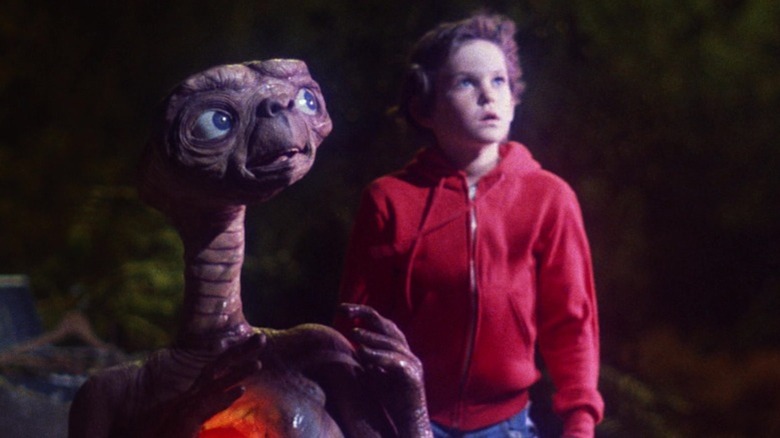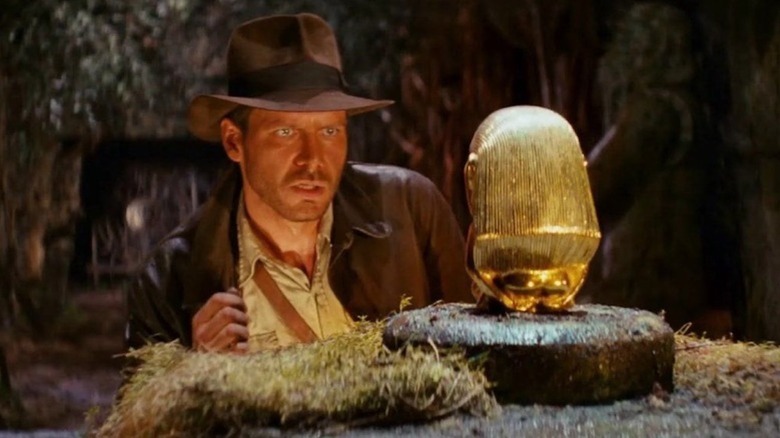John Williams's 50-Year Collaboration With Steven Spielberg Stems From A Shared Love Of Hollywood History
If you grew up wanting to be a filmmaker, you are inescapably indebted to the directors of your youth. While your work will likely be infused with the going style (e.g. any kid hopping into what is now an old-fashioned artform won't be able to expunge countless hours of TikTok videos from their brain), you'll probably be standing on the shoulders of Barry Jenkins, Chloe Zhao and Ryan Coogler — which means you'll be drawing from their reservoir of inspiration. Whether you know it or not, Robert Bresson, Agnes Varda, and Jean-Luc Godard are speaking through you. Every artist is always looking backward.
Steven Spielberg might've been the youngest of the 1970s New Hollywood film brats, but aesthetically, he was more deeply in touch with the just-ended era of studio filmmaking than any of his peers. He wanted to harness the groundbreaking technology at his blockbuster disposal to make classical, mass-appeal entertainments. While Francis Ford Coppola, Martin Scorsese, and Brian De Palma were unnerving moviegoers, Spielberg was reaching back to Frank Capra, John Ford, and George Stevens. He wanted to connect, if not reassure.
And when it came to scoring a film, he craved orchestration with roots in movies made before he was born. To capture this sound, he hooked up with John Williams.
From The Sugarland Express to The Fabelmans and, hopefully, beyond
It is nothing less than a gift that Spielberg and Williams are still collaborating at the ages of, respectively, 76 and 90. The latter has won three Academy Awards in association with the former ("Jaws," "E.T. the Extra-Terrestrial" and "Schindler's List"), and if you cant believe that Williams lost for "Raiders of the Lost Ark," blame Vangelis for writing the undeniably catchy main theme for "Chariots of Fire," which topped the Billboard Hot 100 for one week in 1982.
But if you're wondering how Spielberg and Williams have stuck together for 50 years, it's all about a shared love of old movie music. As Williams explained this week at the American Cinematheque's "Spielberg/Williams: 50 Years of Music and Movies:"
"Steven grew up loving the great past of the film industry. And he had the kind of psychology to ask, 'Can we be as good as the people who came before us?' He loves the old composers, he loves [Erich] Korngold and [Max] Steiner ... He was listening back into the accomplishments of these people before him. Not that he isn't a forward-moving force, but he's connected to the past. And one of the things I wanted to do with music was write as well as Korngold. In a way, I wasn't looking ahead to what's next. I was looking in the same direction Steven was."
While Coppola and Scorsese gravitated to classical composers like Nino Rota and Bernard Herrmann, they were 20th-century artists. Korngold and Steiner were both born in the 19th century. They were adults when the motion picture industry took off. They pioneered film scoring. Spielberg takes heat for being a sentimentalist, but his affinity for these old masters instilled in many a Gen X-er an appreciation of classical music. And this is all due to the indelible work of John Williams.

